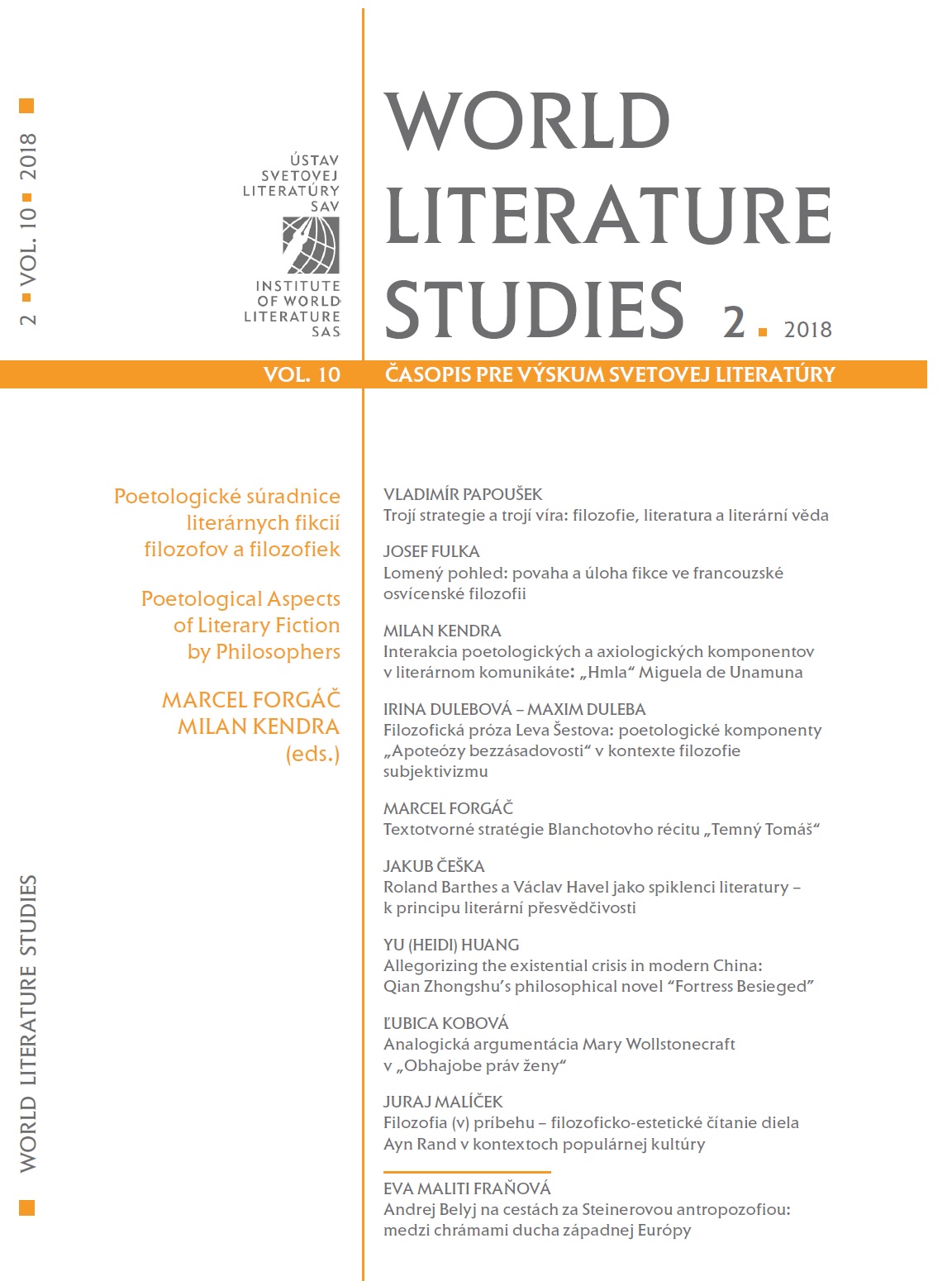Lomený pohled: povaha a úloha fikce ve francouzské osvícenské filozofii
Gaze refracted: The nature and function of fiction in French Enlightenment philosophy
Author(s): Josef FulkaSubject(s): Language and Literature Studies, Early Modern Philosophy
Published by: SAV - Slovenská akadémia vied - Ústav svetovej literatúry
Keywords: Enlightenment; Education; Perception; French philosophy;
Summary/Abstract: The aim of the present text is to analyse the function of philosophical fictions in French 18th-century philosophy. These fictions are based on the idea of an innocent gaze, cast on our own culture and perception; such a gaze is often connected with a figure of alterity: a child, a stranger, a blind or deaf person etc. The author argues that this gaze, in fact, is most often refracted, that is to say, it is a gaze of the philosopher himself who only imagines the alterity in question. This principal thesis is illustrated by examples taken from two realms: the theory of perception (Condillac’s statue) and the theory of education (Rousseau and Mme de Genlis).
Journal: World Literature Studies
- Issue Year: 10/2018
- Issue No: 2
- Page Range: 14-23
- Page Count: 10
- Language: Czech

